Five Ways To Avoid A SpaghettiOs Social Media Disaster
To acknowledge December 7th yesterday—Pearl Harbor Day here in the United States—the food brand SpaghettiOs sent out the following tweet:
2,402 Americans were killed on December 7, 1941 when Japanese fighters launched a surprise attack on American military ships based in Pearl Harbor, Hawaii. The attack directly led to the United States entering World War II, in which an additional 418,000 Americans died.
So how, exactly, does a smiling SpaghettiOs noodle holding a flag honor that sacrifice? It doesn’t, obviously, and the more than 5,000 people who retweeted the ridiculous tweet torched the brand for its casual commercialization of a national tragedy.
Worse, they didn’t learn from the mistakes of others. SpaghettiOs was the latest in a long line of brands using moments of commemoration to promote their brand. In August, for example, The Golf Channel “honored” Martin Luther King’s “I Have a Dream” speech by asking golfers to submit their golf dreams.
And in April, immediately following the Boston Marathon bombing that killed three people and maimed many others—the food website Epicurious sent these tweets:
In the cases above, I don’t believe that the brands intentionally sent those tweets to manufacture a controversy. But there’s no denying that these social media hubbubs resulted in massive brand recognition, spread by angry tweeters who shared the brands’ names.
I’m no longer convinced that these instances hurt all brands in the long-term; there’s at least some evidence that they don’t. It’s entirely possible that SpaghettiOs, now back in the public consciousness, will experience a boost in sales. If that’s the case, we can expect to see more brands using this tactic intentionally.
Clothing designer Kenneth Cole appears to be doing so already. He sent these tweets in 2011 about Egypt and 2013 about Syria, respectively:
Despite receiving intense criticism for his crassness, he bragged to Details Magazine in October that:
“If you look at lists of the biggest Twitter gaffes ever, we’re always one through five. But our stock went up that day, our e-commerce business was better, the business at every one of our stores improved, and I picked up 3,000 new followers on Twitter. So on what criteria is this a gaffe?”
Assuming you don’t want your brand to be associated with those tactics, here are five tips that will help you honor a national holiday, day of commemoration, or news event the right way:
1. Don’t Be Clever
When honoring a holiday on which people died or fought for equal rights, don’t be clever or stretch to make the moment fit your brand (e.g. connecting scones with dead marathoners). If you’re so inclined, make a straightforward and genuine statement honoring the people affected or lost (“72 years ago today, thousands of Americans lost their lives in Pearl Harbor. We honor their sacrifice.”). Obviously, that statement shouldn’t be accompanied by an animated noodle.
2. Don’t Be Promotional
Commemorative days don’t serve as moments to sell your brands. The only exception is if you’ve done something to help. For example, it would be okay to say, “In honor of those who died in Pearl Harbor, we have made a donation of $25,000 to the World War II National Memorial Fund.”
3. For Major News Events, Simpler Is Better
On and after September 11, 2001, most commercial websites understandably felt the need to acknowledge the tragedy. The websites that did it best made it completely about the event. As a positive example, here’s what Amazon.com had on its homepage on September 14, 2001:
4. Ask Whether You Should Say Anything At All
There seems to be an increasing tendency of unrelated brands to comment at every potential moment. A straightforward statement is generally an okay idea, but ask yourself whether you should be saying anything at all. Few brands are expected to comment on Pearl Harbor Day, for example. Ask yourself when your brand should be commenting on those dates—or news events—at all.
5. Train Your Staff
Print this post. Have a formal staff training. Have an informal discussion. However you choose to train your staff, make sure you train your staff! My belief is that most of these mistakes aren’t made by evil, mean, or otherwise horrible people. They’re made, most of the time, by oblivious but well-meaning and untrained people.
Like the blog? Read the book! The Media Training Bible: 101 Things You Absolutely, Positively Need to Know Before Your Next Interview is available in paperback, for Kindle, and iPad.
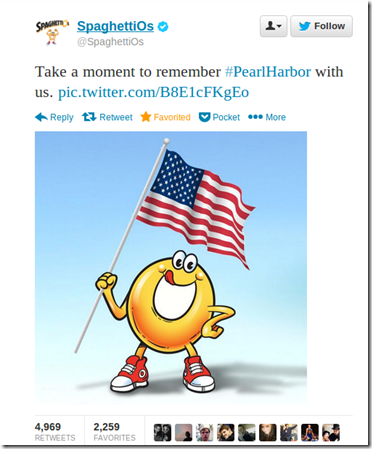
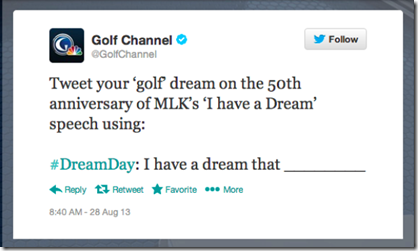
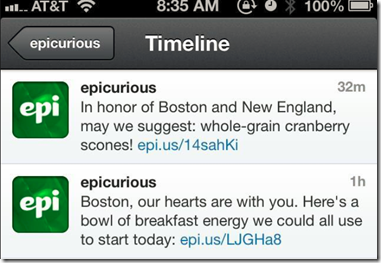
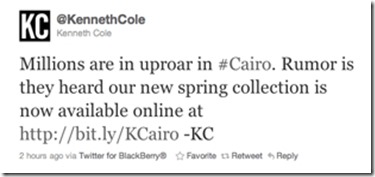
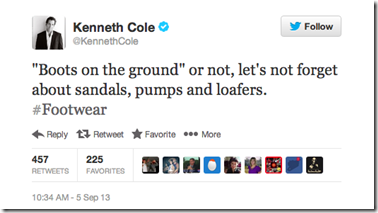
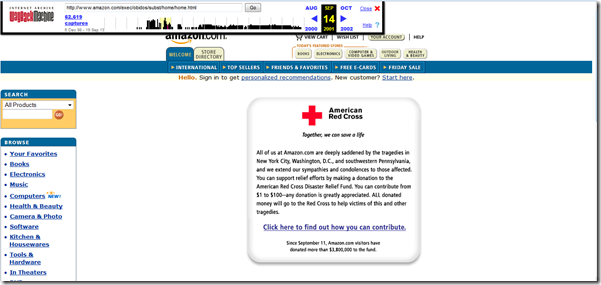
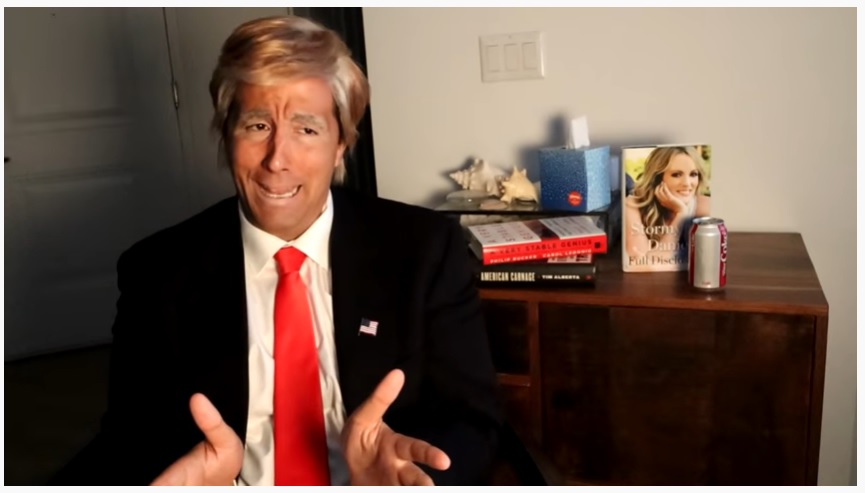

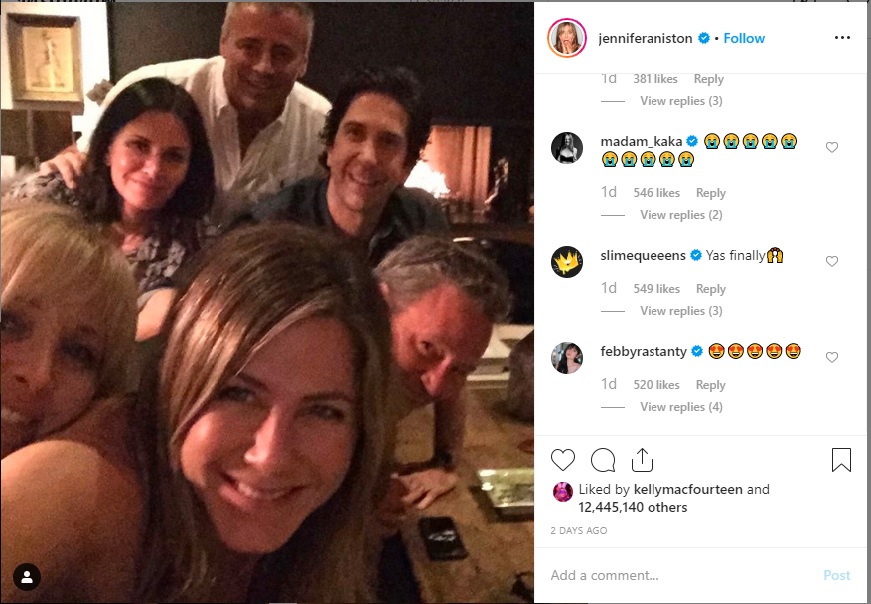
[…] offers five good tips to organizations interested in avoiding such gaffes. They are good ones, but I think there is one […]
I agree that this is definitely not a crisis–it doesn’t have any characteristics of a real crisis. Your tips on how to avoid social media gaffes are good ones. I am partial to number five–I think good training is the biggest deterrent to creating online issues like this. The difference between SpaghettiOs and Kenneth Cole is that KC intended to shock and offend (as you said). That is his MO and the people who buy his clothing at this point in time are not offended by it. My caution to him would be, there may come a time when your penchant for shocking people will cross the line and you will reap the consequences. When you play with fire…
His magazine comments are telling about our culture–when brands resort to offending or shocking people to increase sales, we have hit an all-time low.
I’m a proud American, patriot and have loved ones who have served and lost their lives protecting this great country. And I’m sorry but just don’t agree with this social media mobocracy – this strict democracy of referendum – with no checks and balances, and piling upon a brand for what I would like to trust and believe was simply a pure intention of only good intentions. Such hardened hearts in this world today. Such lack of trust and willingness to judge. If only each move and every decision in our daily lives were to be met with such scrutiny.
J Guest —
I understand where you’re coming from with your comment, and agree that there can be a mob-like “over-sensitivity” at times.
But it’s important to remember that effective communications relies on both the message the sender intends and the message the recipient receives. If the recipient doesn’t agree with the sender’s intentions, the communications was a failure. Therefore, in order to remain in the public’s good graces, brands MUST remain attentive to the perceptions their audiences are likely to form from their actions.
In other words, in many circumstances, you may be “right.” But being right may not be sufficient to maintain a brand’s image and reputation.
Sincerely,
Brad Phillips
[…] have also seen quite a few big brands mark a disaster with their own social media disaster, for Mr. MediaTraining rounded up some terrible social media business moments from the year, including the infamous […]
Good list. I would also add to remember that the internet is GLOBAL. Unless your brand is entirely local it may not be appropriate to comment on national commemorations. At best it may suggest you don’t care about the rest of your audience, at worst you may insult them.
[…] what most recently caught my attention was a post by Mr. Media Training’s Brad Phillips on brands complete and utter exploitation of sacred public holidays and days of […]